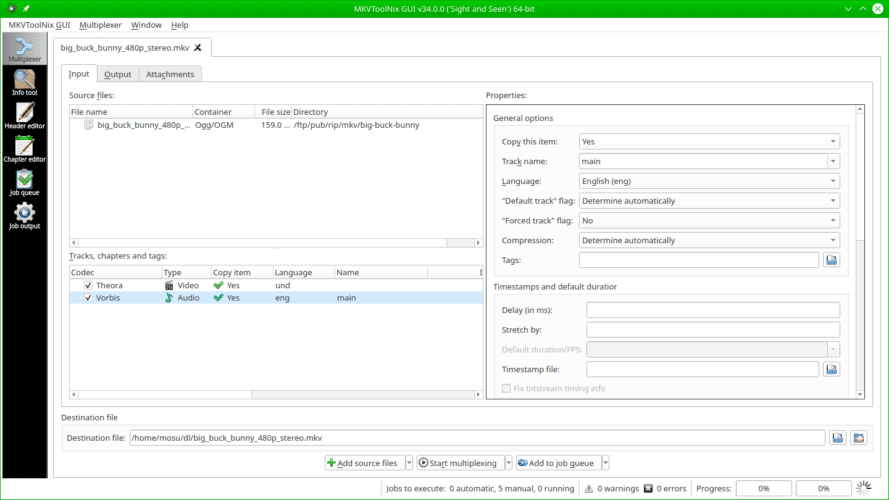MKVToolNix is a suite of Linux and Windows tools for creating, modifying and inspecting Matroska files. They do what GMO tools do for the GMO format and more for Matroska.
It includes the ability to handle multiple input files as if they were binary concatenated into a single large input file.
MKVToolNix is a collection of software utilities which includes mkvmerge, mkvinfo, mkvextract, mkvpropedit, mmg, etc.
Usage
MKVToolNix is available as an AppImage, which implies “one program equals one file”, which you can download and run on your Linux system without the need for package management and without causing any system changes. Impressive!
Most versions of Linux support AppImages, which are single-file programs. Download a program, make it executable, then run it! It is not necessary to install anything. No changes are made to libraries or system settings. The majority of AppImages are compatible with the latest versions of Arch Linux, CentOS, Debian, Fedora, openSUSE, Red Hat, Ubuntu, and other popular desktop operating systems.
Key Features of MKVToolnix
- Support for splitting MKV files to keep file sizes below 4,3 GB.
- Can quickly connect files that have been separated.
- Allows you to edit and manage split files: rename them, mark them, choose languages, etc.
- The information processing speed is fast and efficient, despite its small size.
- Can handle MKV files up to 12GB.
MKVToolnix requires the following operating systems:
- Windows 7/ 8 / 10
- 150 MB or more of free hard disk space
Solutions and Workarounds
There are two possible workarounds:
Compiling with clang instead of gcc
Compilation with version 9 of gcc with which Bullseye is also provided
At the moment I use 1. for my packages and my Buildbot installation. It is a tried and tested solution.
Compile with clang
Install the clang package
When running configure, add the following two command line arguments: CC=/usr/bin/clang CXX=/usr/bin/clang++
That's it.
Compiling with gcc-9
I haven't tested this myself, but it should work the same as compiling with clang described above:
Install the g++-9 package
When running configure, add the following two command line arguments: CC=/usr/bin/gcc-9 CXX=/usr/bin/g++-9
for more information, visit the official website by MKVToolNix.

